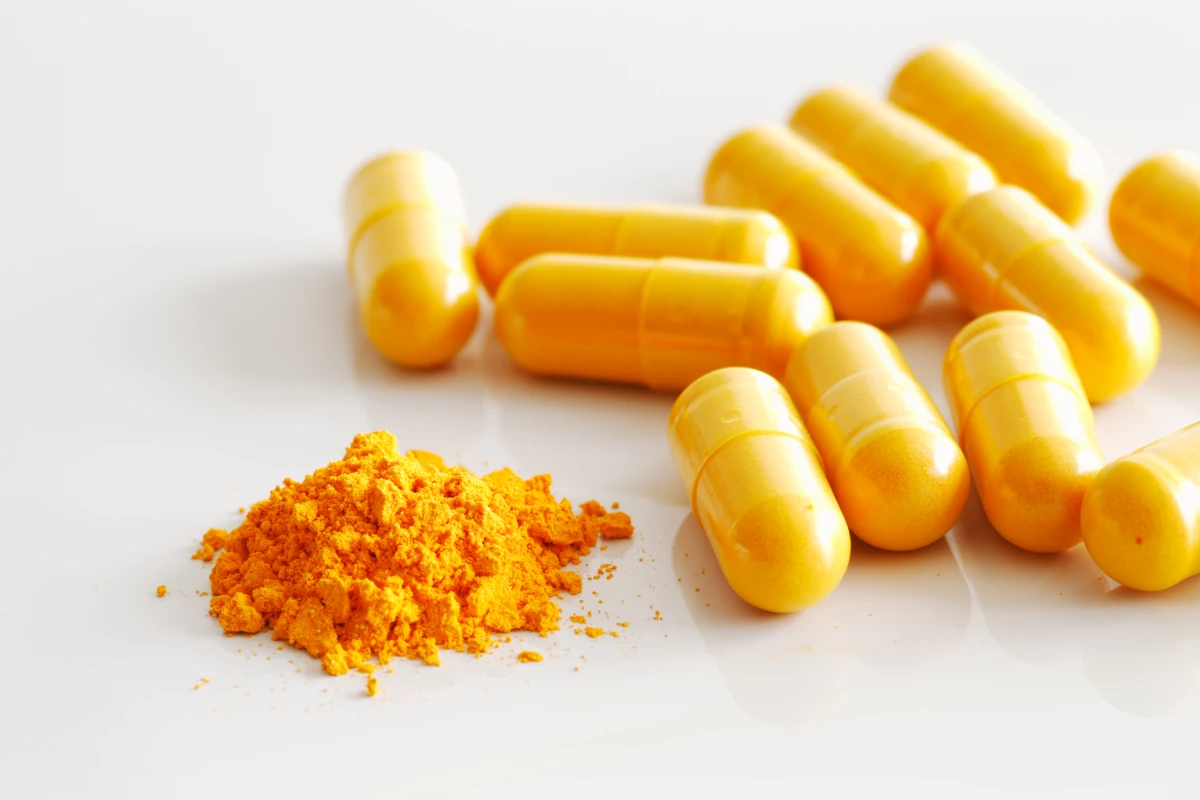The spice that can instantly stain an amateur chef’s kitchen benches, hands and clothes bright yellow has again shown it may be punching above its weight in other ways, with a clinical trial showing it can curb acid reflux as well as common medications.
Following on from several promising laboratory results, a team of scientists from Thailand, including medical researchers from Chulalongkorn University and various hospitals, conducted a randomized, double-blind controlled trial between 2019 and 2021, to demonstrate turmeric’s efficacy.
A 2019 study demonstrated the way, in vivo, in which curcumin – the active compound in turmeric – facilitated a protective mechanism in the esophagus that curbed acid reflux, proving the natural treatment was comparable to the proton-pump inhibitor (PPI) lansoprazole.
The latest research tested the hypothesis, this time with curcumin and another PPI, omeprazole, on 206 patients aged 18-70 suffering from recurrent upset stomach (functional dyspepsia). Omeprazole, which is commonly packaged as Prilosec and Losec, is a popular treatment for gastroesophageal reflux disease (GERD). However, long-term use of PPIs has been increasingly discouraged, with the drugs linked to higher risk of infections, fractures and even dementia.
Curcumin is sourced form the underground rhizomes of the perennial turmeric herb (Curcuma longa), which belongs to the ginger (Zingiberaceae) family. And much like ginger, it’s had reported use in Ayurvedic (Indian) and Chinese medicines for more than 4,000 years, being used to treat everything from arthritis to respiratory infections.
In the latest study, researchers split participants into three cohorts: one to receive turmeric (two large 250 mg curcumin capsules, four times a day, plus a small dummy capsule daily); another receiving omeprazole (two large dummy capsules, four times a day, plus a small PPI capsule daily); and the final group would follow the same regimen with two large curcumin capsules and the small PPI pill.
After 28 and 56 days, the remaining 151 participants (20 in the curcumin cohort, 19 in the omeprazole group and 16 who received both treatments) were assessed by Severity of Dyspepsia Assessment (SODA) score. SODA tests for the relief dyspepsia symptoms such as pain, burning, bloating, gas and nausea.
At the midway point, the curcumin or combined treatments scored almost the same as the PPI alone for all symptoms (−2.22, –2.32, and −2.31, respectively), except for pain, for which omeprazole came out slightly ahead (−4.83, –5.46 and −6.22). After 56 days, the pain score was similar (−7.19, –8.07 and −8.85) but again the turmeric scored best at relieving other symptoms (−4.09, –4.12 and −3.71, respectively).
It’s not the first time turmeric has been linked to alleviating gastrointestinal inflammation. A May 2023 study by another team of researchers found that curcumin supplementation was linked to weight loss and other beneficial metabolic outcomes due to its antioxidative and anti-inflammatory properties. It's also been the subject of research for eye treatments and wound healing.
No serious side effects were reported by any of the participants across the dyspepsia study, however, the researchers found that, while not statistically significant, some participants taking curcumin had liver function impairment. Recently, curcumin intake has been linked to liver injury. While rare, consumers are cautioned to be aware of the risk, with cases emerging in the US and Australia this year.
While the trial’s results were promising, further research into safety and efficacy is needed for potential commercial use. Nonetheless, the researchers note, “the new findings from our study may justify considering curcumin in clinical practice.”
The study was published in the journal BMJ Evidence-Based Medicine.
Source: Chulalongkorn University via EurekAlert





